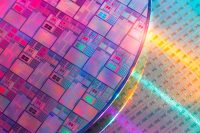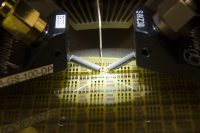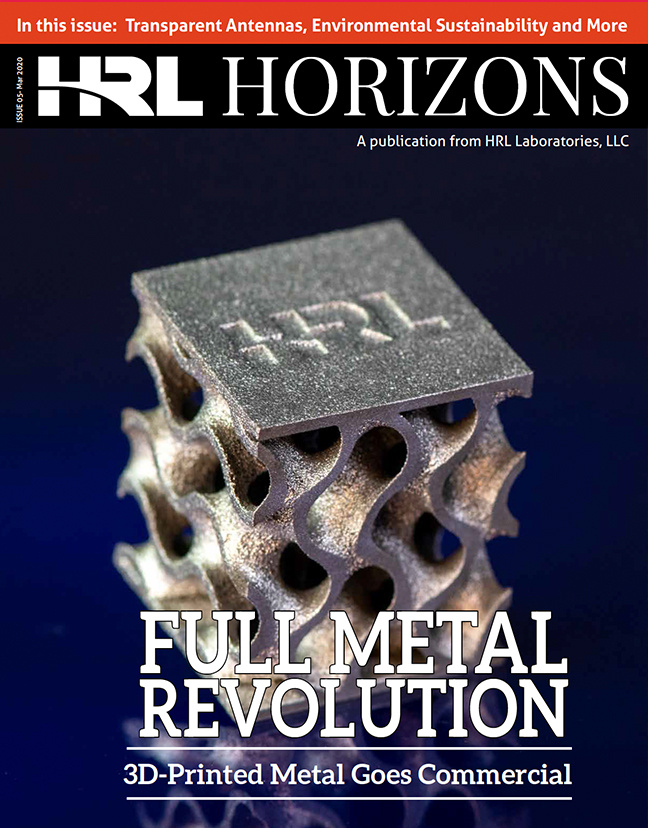Displaying news tagged: silicon
HRL Laboratories and UCLA Researcher Awarded Grant to Advance Quantum Computing

HRL Laboratories and UCLA will collaborate on a project to scale-up silicon-based quantum processors. “Achieving this would allow quantum computing to piggy-back off of existing semiconductor infrastructure and allow the technology to be produced at scale in a way that has never been done before,” according to the project lead.
HRL Laboratories Aims at Unprecedented High-Frequency Performance in Gallium Nitride MMICs Based on Traditional Silicon Semiconductor Fabrication Techniques

HRL Laboratories, LLC, is developing Efficient GaN Integrated G-band Monolithic Arrays (ENIGMA), a project funded by DARPA. ENIGMA will address a gap in technology between the compound semiconductor monolithic microwave integrated circuit industry and the silicon radio-frequency integrated circuit industry.
Novel Memristor Neuron Circuits Offer Building Blocks for Mimicking the Brain

In an effort to electronically mimic neurons—the nerve cells of the brain—scientists from HRL Laboratories, LLC have successfully demonstrated novel electronic neuron circuits that exhibits as many as 23 known behaviors of biological neurons and the three classes of neuron activation (excitation) that code information between neurons about sensory events, cognitive processes, or motor actions.
HRL Laboratories team publishes Quantum Computing Materials paper in MRS Bulletin
An HRL Laboratories, LLC, research team has published a paper in the March issue of MRS Bulletin, a journal of the Materials Research Society, that sits squarely at the intersection of materials science and quantum computing. The paper, “Metamorphic Materials for Quantum Computing,” explores the demands that silicon-germanium (SiGe) quantum dot heterostructures impose on the underlying substrate, the ways in which the metamorphic substrate’s properties impact device performance, and how performance limitations may be overcome.
HRL Laboratories’ breakthrough may pave the way for Gallium Nitride to supplant Silicon in Integrated Circuits

Researchers at HRL Laboratories, LLC, have achieved the first demonstration of gallium nitride (GaN) complementary metal-oxide-semiconductor (CMOS) field-effect-transistor (FET) technology, and in doing so have established that the semiconductor’s superior transistor performance can be harnessed in an integrated circuit. This breakthrough paves the way for GaN to become the technology of choice for power conversion circuits that are made in silicon today.

